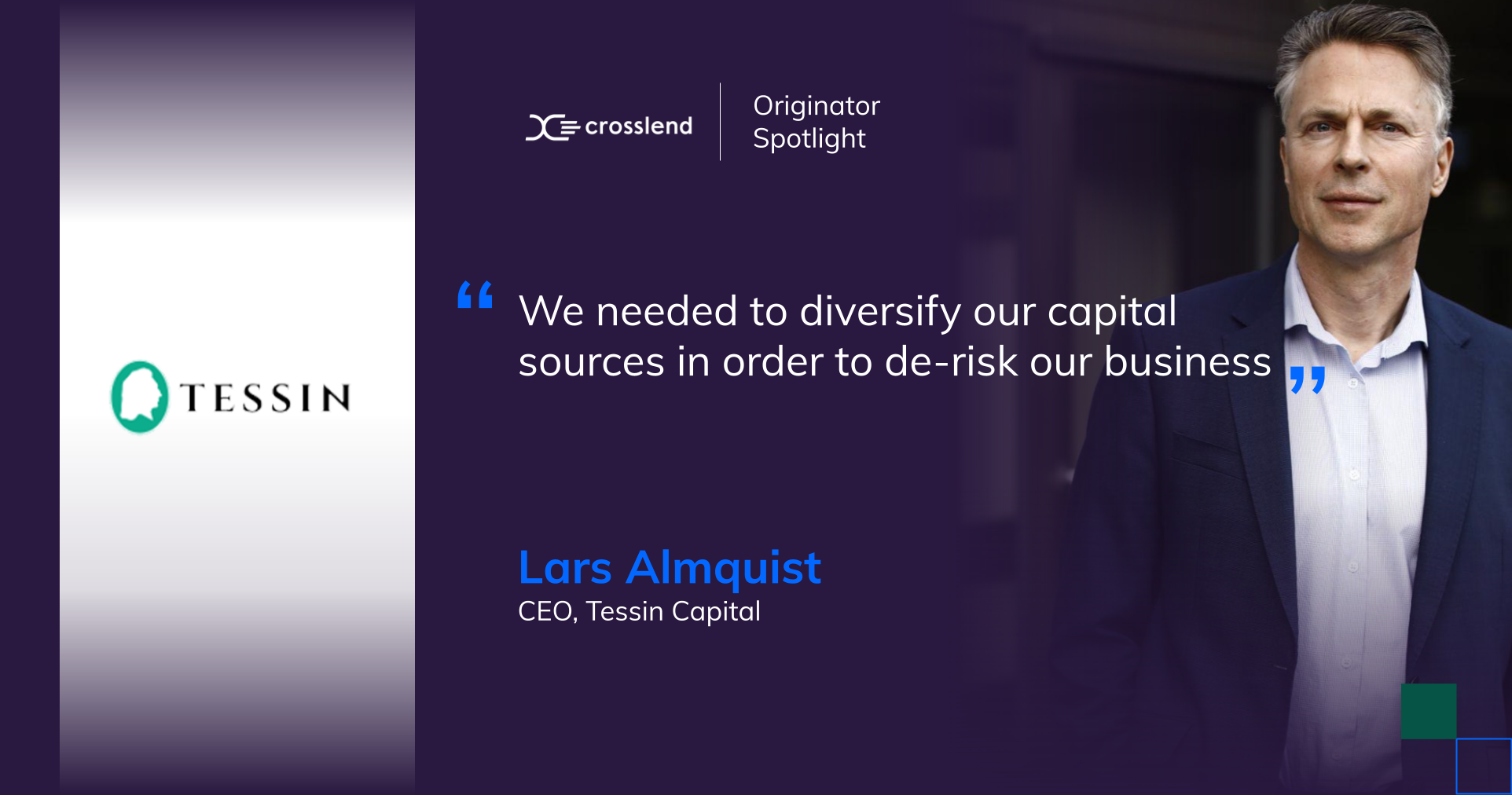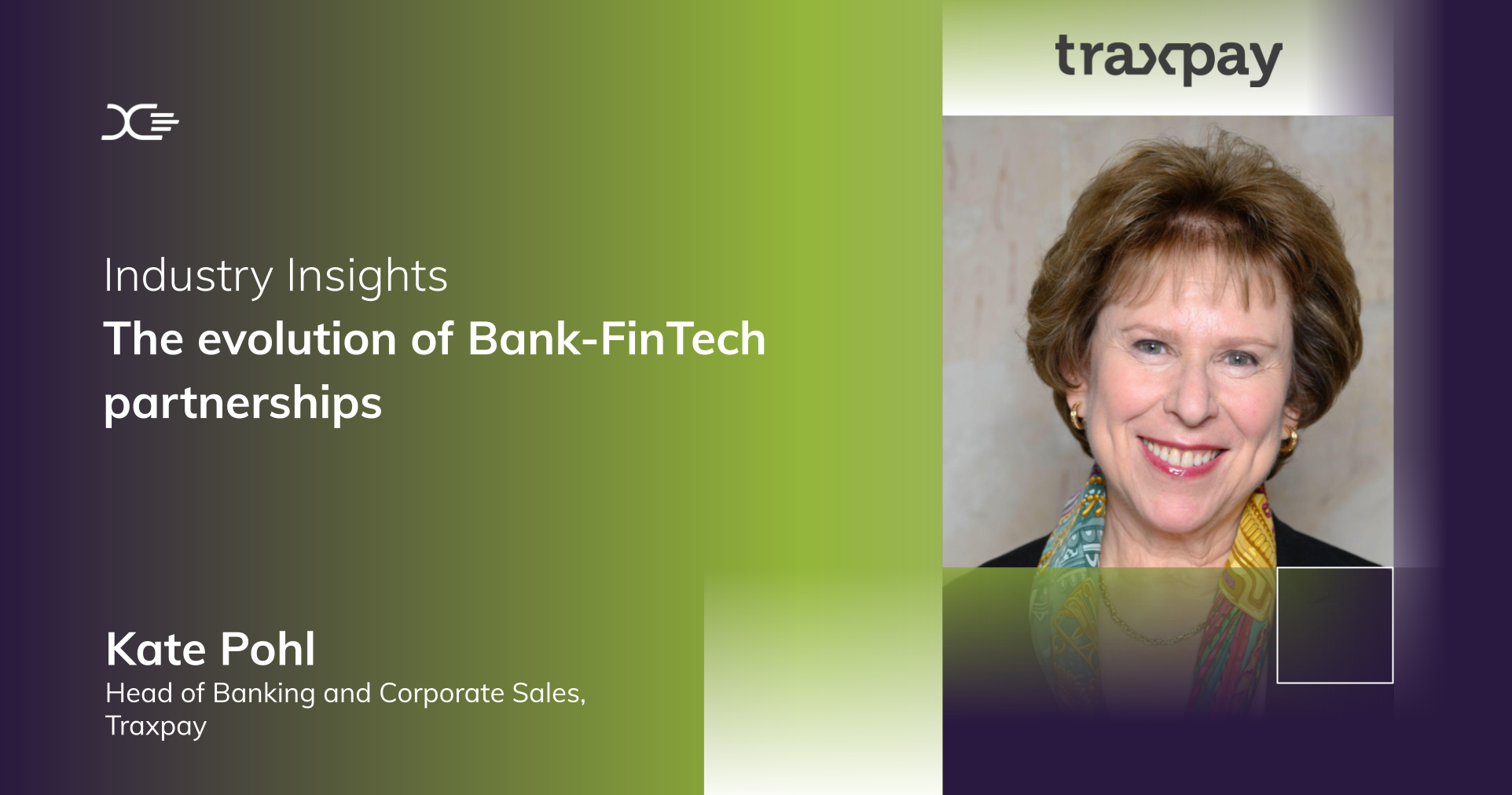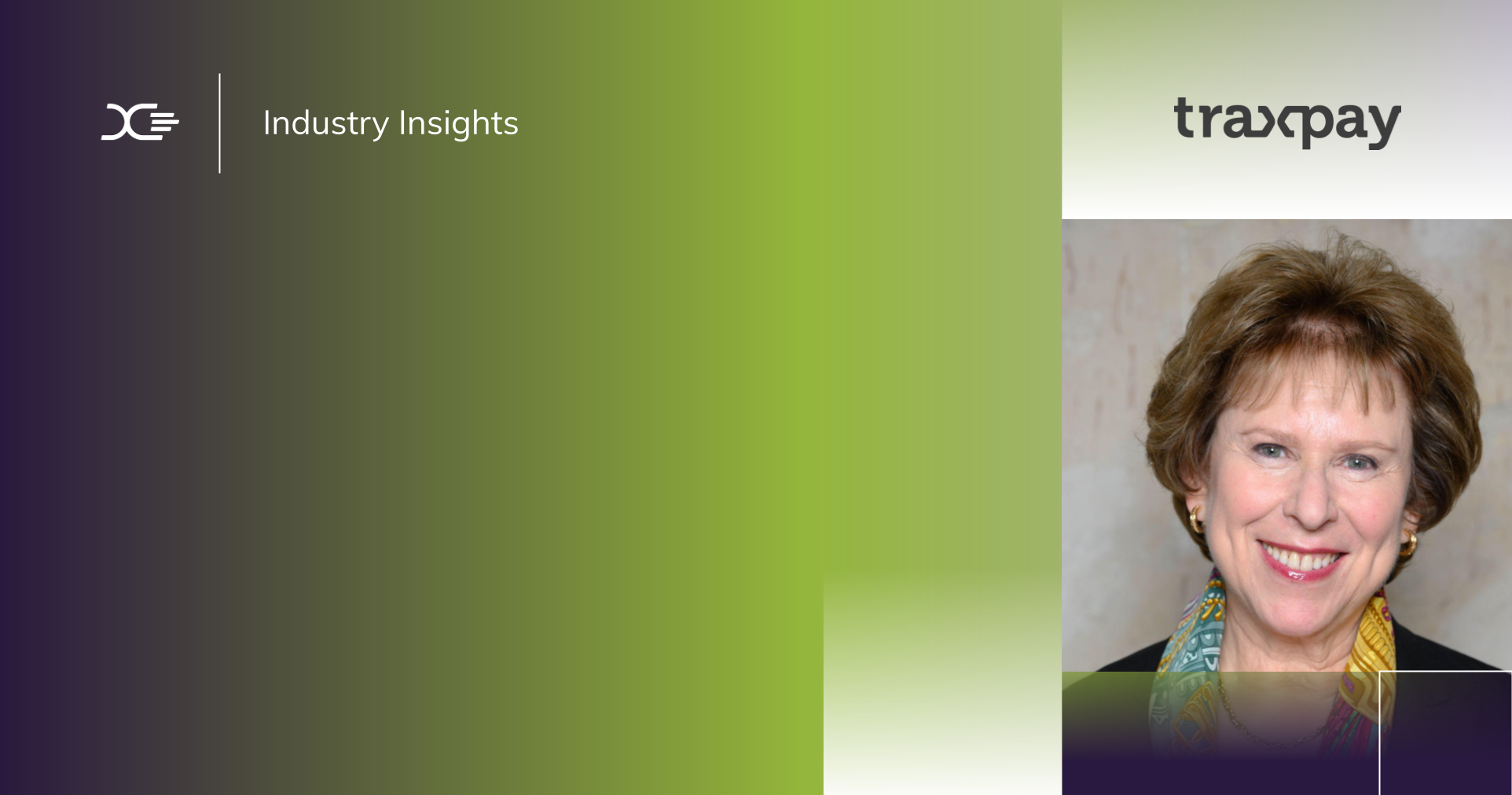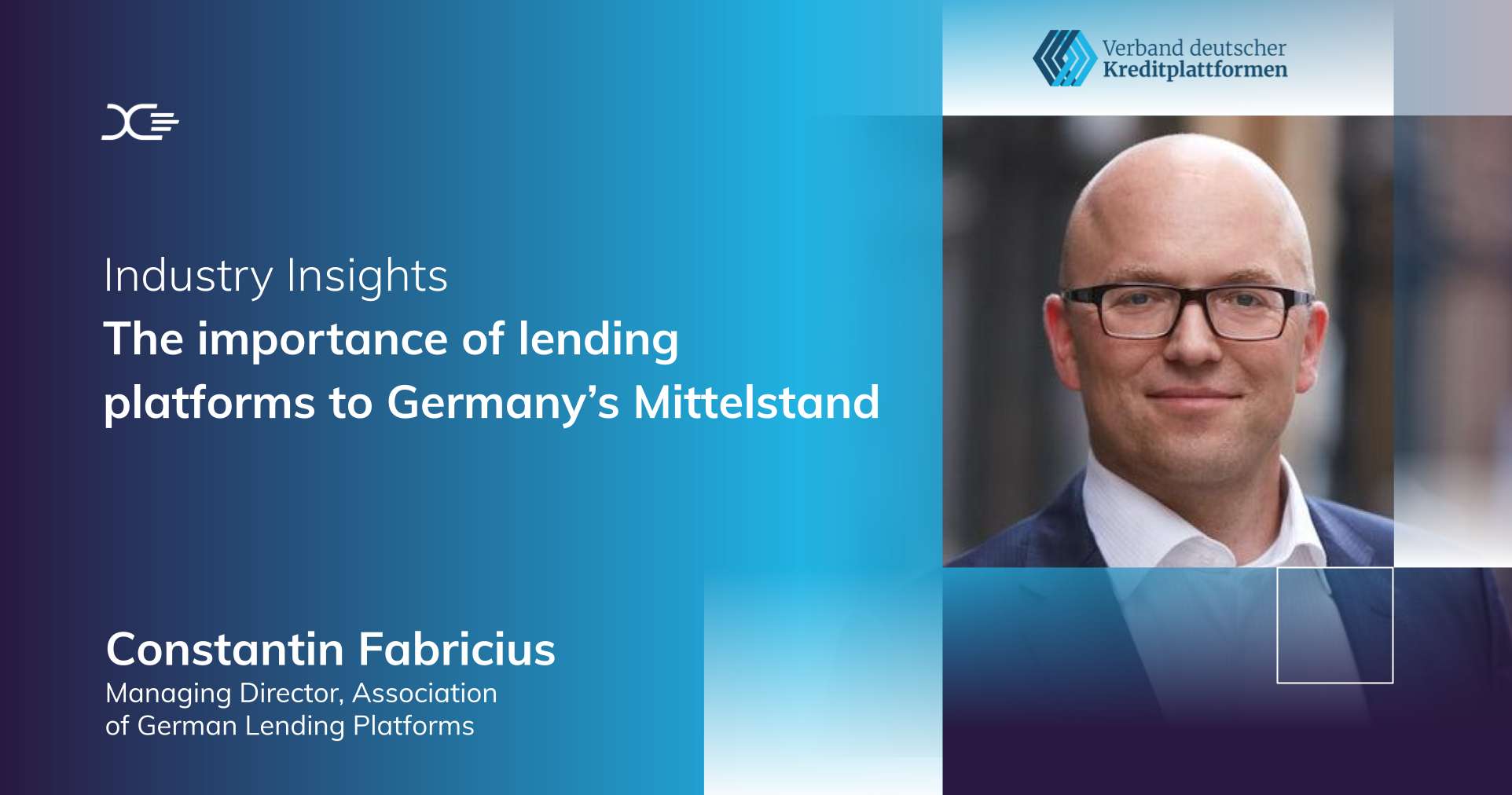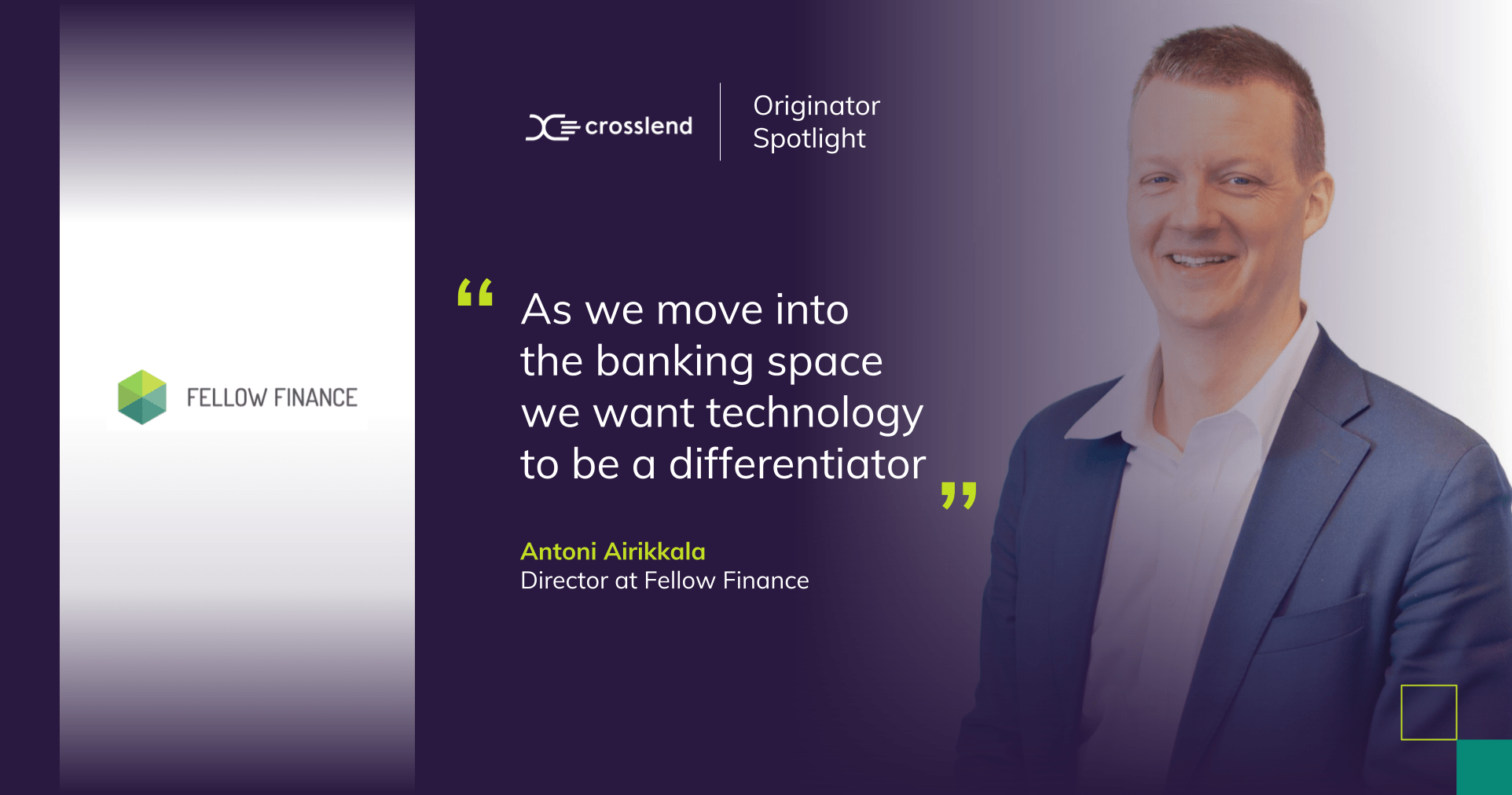Articles featuring:
Banking
Securitisation: active management option to boost Luxembourg hub
The overhaul of Luxembourg’s securitisation laws introduced a number of changes, notably allowing for active management and a broader scope for refinancing. Holger von Keutz, securitisation leader at PwC Luxembourg, believes that the amended law will increase the attractiveness of Luxembourg as a securitisation hub, which in turn will [...]
Originator Spotlight/Tessin
Founded in Stockholm, Sweden in 2014, Tessin AB offers construction and bridge loans to property companies and property developers. While the company started using traditional crowd-funding methods, it has steadily expanded its capital base to encompass institutions and family offices, while moving further down the capital stack of the [...]
The evolution of Bank-FinTech partnerships
Industry veteran Kate Pohl reflects on the maturation of the relationship between FinTechs and banks. She looks at the developments within the trade finance space, and how banks (and other investors) benefit from working with Traxpay, a supply chain finance platform where Kate heads up both banking and corporate [...]
The growth of private debt in Europe has its origins in the Global Financial Crisis
Brian Kane, Director of Capital Markets and Origination at CrossLend, spent the best part of seventeen years working at a ratings agency in Europe from 1997 to 2015. There he had a ringside seat to the emergence of a range of new funding instruments and asset classes in the [...]
Will embedded finance shake up the B2B sector?
Consumers have eagerly taken to the introduction of embedded finance, including buy now pay later (BNPL). Experts believe the B2B space is now primed to follow this consumer trend. They predict that B2B companies will make extensive use of embedded finance products and services, small and medium businesses (SMEs) [...]
Originator Spotlight/ creditshelf
Founded in 2014, creditshelf is a lending platform focused on the German Mittelstand, supporting the capital needs of businesses while allowing institutional investors to gain exposure to this segment. With many German banks becoming increasingly risk averse, demand for financing among SMEs, including working capital, is set for steady [...]
5 ways inflation will impact private debt
The rise of inflation as an economic force has complicated the outlook for investors, many of whom have seen historic losses in fixed income portfolios in the first quarter of 2022. But in private credit markets investors may actually benefit from features of this asset class, including variable interest rates, [...]
Digital lenders set to see spike in demand from businesses as Covid guarantee scheme loans expire
With European government aid schemes coming to an end, digital lenders have a lucrative opportunity to write considerably more business. Traditional banks are often reluctant to dive head first into the SME sector - they often don’t have the back-end infrastructure they need to make servicing large numbers of [...]
Building industry standards for lending platforms in Germany
Alternative lenders are playing an increasingly important economic role in funding businesses, in Germany and across Europe. In 2021, the amount of lending to businesses through German marketplaces totaled 11.4 billion euros. At the same time, growing participation on the funding side by institutional investors has led to a [...]
Originator Spotlight/ Fellow Finance
In the landscape of alternative lenders in Europe, Fellow Finance is a notable success story. Founded in Helsinki, Finland in 2013, its focus is on consumer finance and SME lending (primarily invoice factoring), with operations in Finland, Denmark, Poland, and Germany, though its native Finland is its largest market. [...]
2021 Recap – Major Trends in Private Debt
2021 was an eventful year for private debt in Europe. The enduring low-yield environment saw continued demand for private debt offerings, in part due to the illiquidity premium on offer. For some banks, the prospect of enhanced capital requirements will increase the popularity of originate-to-distribute and balance sheet light [...]
How growth success factors have changed over time for European lending platforms
Over the past few years, we have engaged with more than 70 credit platforms. We have drawn many learnings from these onboarding processes. Since all of these platforms have gone through some form of due diligence process with us and since we maintain close relationships to their teams, we [...]
The rising importance of private debt as an asset class
There is an academic and slightly boring way of lecturing about private debt as an asset class. It goes somewhat like this: yields are low, new investable assets are needed, and here is a few charts about a trendline showing that the year to year growth rates are climbing [...]
Reflecting on the regulatory framework for securitisation
At the end of September, the European Commission released its latest action plan for the Capital Markets Union. Acutely aware of the importance of timing as Brexit continues to move in an uncertain direction and as the effects of the pandemic persist, the recent action plan has provided some [...]
Verbriefung von Forderungen wird für Banken und andere Originatoren effizienter
TXS und CrossLend vereinbaren Kooperation. Um ihre Bilanz zu entlasten, stellen Banken und andere Originatoren Forderungen zusammen, um diese an Investoren weiterzuverkaufen. Bei der Auswahl und Zusammenstellung der Forderungen werden sie von spezialisierten Dienstleistern wie der Firma TXS aus Hamburg unterstützt. TXS ist einer der führenden deutschen Anbieter in [...]
The potential of private credit as an asset class in the Government’s economic plan
How CrossLend’s digital debt marketplace could efficiently fund key investment objectives outlined in the Irish Programme for Government 2020 by channeling institutional private debt. The government coalition parties (Fianna Fáil, Fine Gael and the Green Party) have now put in place their programme for Government, implementation of which will [...]
What’s the outlook for UK non-bank lenders?
COVID-19 has been in the UK for at least six months and its influence doesn’t appear to be waning anytime soon. The average Jo(e) will no doubt have experienced a change in attitudes towards facial coverings and working from home, but financial professionals have also witnessed a fundamental change in [...]
Supporting SME Funding as part of the COVID-19 economic recovery
Over the past few months, in the face of a global pandemic, Ireland’s health care systems and citizens have been tested by uncertainty and scarcity. As the new Irish coalition government ‘beds in’ and the economy begins to reopen, businesses now face a similar uncertainty and scarcity. But for [...]


